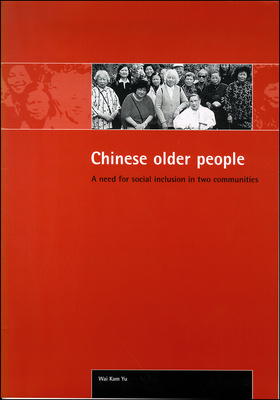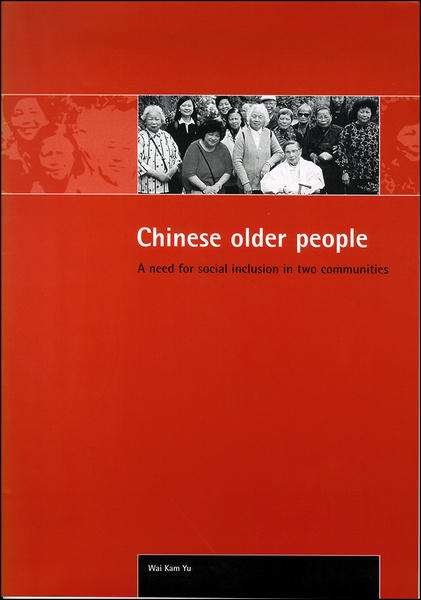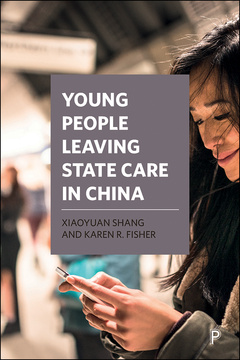Published
Sep 6, 2000Page count
44 pagesBrowse the series
ISBN
978-1861342423Dimensions
297 x 210 mmImprint
Policy PressChinese older people living in the UK suffer from a number of disadvantages compounded by exclusion from both their own community and the mainstream community. Not only do Chinese older people find it difficult to access social and public services, but their own community is also not strong enough to provide them with the necessary care and support. This dual exclusion undermines their quality of life.
Through interviews with 100 Chinese older people, focus groups and discussion with those working with older people in the community, Chinese older people looks at:
specific issues for women and middle-aged men;
retirement and self-esteem;
culture and traditional values;
the social networks used by Chinese older people;
lifelong learning;
participation.
The report concludes with suggestions for good policy and practice for promoting Chinese older people's inclusion in both communities.
Chinese older people is essential reading for anyone working with or providing services to older people and excluded ethnic minority groups, as well as policy makers and researchers interested in older people or the dynamics of ethnic communities.
"An interesting, insightful and informative report, which challenges stereotypes. It contributes to the understanding of a group of older people whose needs have been unrecognised and offers some highly appropriate and practical suggestions for future action. A stimulating study for the general reader, representing good value for money and essential background for care workers and policy-makers working with Chinese older people." Education & Ageing
Sam Wai-kam Yu is a Senior Lecturer in the Division of Social Studies at City University of Hong Kong.
Background and approaches to the study; General profile of Chinese people; Summary of the interview findings; Chinese women and middle-aged men; Social institutions for social networking; Promoting double inclusion in two communities.










